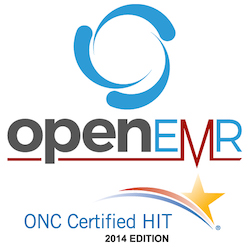quality improvement
See the following -
Flagship Project on Precision Medicine for Underserved Women Will Advance Learning Health System
 Marc Wine, a supporter of the LHS - Precision Medicine PCOS Project and participant in Learning Health Community initiatives, who attended the summit hosted by the president said, "One goal is to seek collaboration with underserved communities in genomics, open data and integrative medicine. This will result in engaging individual patients in ways that will move them from dependency on fragmented healthcare to the point where patients can use their own evidence-based genetic information to make the very best health decisions." The Precision Medicine PCOS Project is aimed at developing a protocol for women with PCOS while employing an integrative medicine approach to treatment based on the participant's molecular makeup, clinical data and available scientific knowledge.
Marc Wine, a supporter of the LHS - Precision Medicine PCOS Project and participant in Learning Health Community initiatives, who attended the summit hosted by the president said, "One goal is to seek collaboration with underserved communities in genomics, open data and integrative medicine. This will result in engaging individual patients in ways that will move them from dependency on fragmented healthcare to the point where patients can use their own evidence-based genetic information to make the very best health decisions." The Precision Medicine PCOS Project is aimed at developing a protocol for women with PCOS while employing an integrative medicine approach to treatment based on the participant's molecular makeup, clinical data and available scientific knowledge.
- Login to post comments
Health IT Innovation? Not Without Open Platforms
The issue here is closed platforms, which enable most EHR vendors to position themselves as the single source of innovation. They also create dependent customers and glacial progress in two parallel areas of innovation—evidence-based medicine and information technology. No one company can keep up with the natural pace of advancement in either realm, let alone both. Read More »
- Login to post comments
HHS Releases Landmark Report: Reforming America's Healthcare System
 On December 3, 2018, the Department of Health and Human Services (HHS) released an extensive, 120-page report on the administration's proposals to reform the healthcare system. The report, titled Reforming America's Healthcare System Through Choice and Competition, is divided into four major sections. The report that government policy of the last few years has suppressed competition, increased prices for healthcare, and limited choices for consumers. Though rich in detail as it tries to prove each of these points, the more than fifty recommendations are often broad and aspirational rather than practical. Since I am not a health economist, I will leave the market issues to others to discuss (many of the ideas in this report have been vetted and discussed by others previously). But there are two sections of the report which make direct mention of Health IT.
On December 3, 2018, the Department of Health and Human Services (HHS) released an extensive, 120-page report on the administration's proposals to reform the healthcare system. The report, titled Reforming America's Healthcare System Through Choice and Competition, is divided into four major sections. The report that government policy of the last few years has suppressed competition, increased prices for healthcare, and limited choices for consumers. Though rich in detail as it tries to prove each of these points, the more than fifty recommendations are often broad and aspirational rather than practical. Since I am not a health economist, I will leave the market issues to others to discuss (many of the ideas in this report have been vetted and discussed by others previously). But there are two sections of the report which make direct mention of Health IT.
- Login to post comments
OpenEMR Community Responds to HRSA Call for Advanced EHR Solutions for Community Health Centers
 The Health Resources and Services Administration (HRSA) is taking major steps to help Community Health Centers across the US tackle the devastating opioid epidemic by providing funding for substance abuse services and modern EHRs. OpenEMR, a modern, customizable, open-source and ONC Certified EHR is the best solution for high impact and cost-effective information technology solutions for Community Health Centers
The Health Resources and Services Administration (HRSA) is taking major steps to help Community Health Centers across the US tackle the devastating opioid epidemic by providing funding for substance abuse services and modern EHRs. OpenEMR, a modern, customizable, open-source and ONC Certified EHR is the best solution for high impact and cost-effective information technology solutions for Community Health Centers
- Login to post comments
Patients Join Advisory Board of Revolutionary Precision Medicine Study of PCOS Disease and Women's Health
 Open Source Health Inc., a cloud based precision medicine platform that puts control into the hands of women to educate, advocate and collaborate on their own healthcare is pleased to announce the appointment of a 10 person Precision Medicine Patient Advisory Board. “Involving patients in the design of every aspect of their Precision Medicine care is revolutionary,” says Sonya Satveit, CEO of Open Source Health Inc., “Women with PCOS have been underserved in healthcare for a long time, and now for the first time, we have brought them to the forefront of innovation to trail blaze a new path to optimal health. Precision Medicine is the next paradigm shift in healthcare and it’s exciting to have an amazing group of women involved as we create a new standard of care.”
Open Source Health Inc., a cloud based precision medicine platform that puts control into the hands of women to educate, advocate and collaborate on their own healthcare is pleased to announce the appointment of a 10 person Precision Medicine Patient Advisory Board. “Involving patients in the design of every aspect of their Precision Medicine care is revolutionary,” says Sonya Satveit, CEO of Open Source Health Inc., “Women with PCOS have been underserved in healthcare for a long time, and now for the first time, we have brought them to the forefront of innovation to trail blaze a new path to optimal health. Precision Medicine is the next paradigm shift in healthcare and it’s exciting to have an amazing group of women involved as we create a new standard of care.”
- Login to post comments
US Hospitals Facing Financial Squeeze-Mass Closures
In the last year, the profitability of U.S. hospitals eroded for the first time since the Great Recession, pushing some closer to and others over the solvency precipice. Revenues are down and costs are up. And these issues appear systemic and entrenched, giving rise to a series of important and relevant questions: How can hospitals adapt? If they do, will they still survive? And, do we as a nation think it’s important to make hospitals accessible, even if they lose money? Read More »